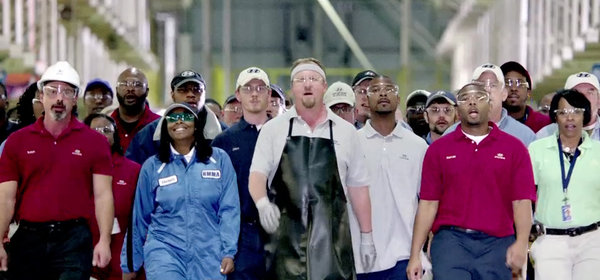
By STUART ELLIOTT Published: February 15, 2012
BLUE-COLLAR workers in fields like manufacturing — particularly when they make products on American soil — are again becoming a favorite subject for white-collar workers on Madison Avenue.
The trend was born of the economic worries that followed the financial crisis in 2008. Recently, it is gaining steam — appropriate, since the ads often use blasts of steam to signal something is being built — with proposals in Washington to offer incentives to encourage the location or relocation of factories in the United States.
“We continue to see very heavy emotional response to anything that would leverage against the bad economy,” said Robert Passikoff, president at Brand Keys, a brand and customer-loyalty consulting company in New York. Continue reading This Column Was 100% Made in America

You must be logged in to post a comment.